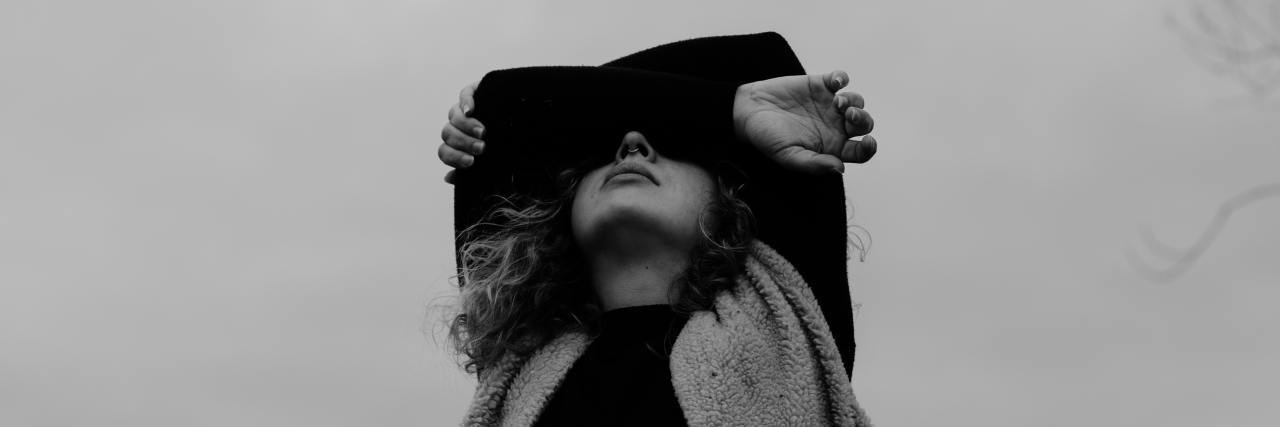Why Did It Take So Long to Get My Eating Disorder Diagnosis?
Editor's Note
If you live with an eating disorder, the following post could be potentially triggering. You can contact the Crisis Text Line by texting “NEDA” to 741741.
I’ve lived with an eating disorder for six years now, but I’ve only been in recovery for just under two years.
Why is there such a discrepancy? Why did it take so long for me to receive a diagnosis?
I grew up with body image struggles, but I absolutely loved food and never thought that I would end up battling an eating disorder. From an early age, I yearned to escape my body — a consequence of societal messages about disability. But I never displayed any other telltale signs of a potential eating disorder, so an ED diagnosis was never on my radar — or anyone else’s.
My eating disorder developed when I was in college as I struggled to find a way to motivate myself to churn out the best grades possible. I became deeply angry with myself when I perceived that I was failing, even if my reality proved otherwise, and I allowed my feelings to affect my food portions. I was also extremely busy with extracurricular activities and leadership positions, so nourishing my body quickly became an afterthought. Still, no one — myself included — caught that I was beginning to slip into an eating disorder. My school’s counseling services were sparse, and I appeared to be eating regularly and enjoying food, so no one thought to refer me.
My roommates likely noticed my eating habits were becoming peculiar and secretive, but I tried to pretend that my relationship with food was “normal.” I ate only when I knew no one else would be in the kitchen — but I ate. I stashed non-perishable snacks in my room, where no one could see them — but I didn’t fear calories. And at that point, my anxiety and depression were so pervasive that they became everyone’s primary focus — so there was no reason to look for anything else amiss. No one thought to look for signs of an eating disorder, probably because in my mind, I didn’t have one.
About a year-and-a-half post-college, I read a personal account of another woman’s eating disorder recovery and realized I used many of the same behaviors she recovered from. The realization shocked me because prior to that moment, I never saw my behavior as “disordered.” My relationship with food was certainly unconventional, but it never alarmed me until that day, when I realized for years on end, I fell far behind a “normal” meal schedule. From that day forward, I acknowledged my “disordered eating,” but I never believed I had a full-fledged eating disorder. And professionals skirted the issue too, never asking about my eating habits and brushing off my low weight as fitting my weight history.
It wasn’t until a chance meeting with a new psychiatrist that I was formally diagnosed with anorexia nervosa. By that time, I’d spent four years letting everyone — myself included — ignore my eating disorder symptoms that I disbelieved my own diagnosis. When the psychiatrist opened up the DSM-5 to explain the criteria for anorexia nervosa, I fought every professional interpretation he made: I wasn’t malnourished; I was naturally slender. I weighed myself, but I didn’t care about the numbers. I ate fast food, so how could I fear calories? I was completely in denial of the extent to which my eating disorder had taken over my life.
It wasn’t until a few months later, when I entered eating disorder treatment for the first time, that I realized I did have anorexia — and it was serious. In treatment, I struggled every step of the way, but I gained awareness of all the latent symptoms everyone spent years mitigating. Having my symptoms validated was both comforting and terrifying because it confirmed what I’d spent years accepting, but it also proved just how much work I still had to do to reach recovery.
Now, nearly two years into recovery, I’ve managed to completely eliminate some disordered habits, but I still cling to others. My continued battle with anorexia forces me to ponder the inevitable question: Would I be recovered by now if I’d been diagnosed with anorexia right when my symptoms started?
Unfortunately, I’m not the only one asking that question. According to National Association of Anorexia Nervosa and Associated Disorders (ANAD), under 6% of people with eating disorders are medically underweight, even though clinicians typically rely on low BMI to diagnose eating disorders. And even though BIPOC, members of the LGBTQ+ community and people with disabilities are statistically more likely to develop eating disorders than their white, heterosexual, cisgender and able-bodied peers, they remain underdiagnosed due to the misconception that eating disorders disproportionately affect slender white, heterosexual, able-bodied women. Naturally, these dangerous beliefs put men at risk too — 10 to 15% of those diagnosed with anorexia or bulimia are male, but men are less likely to receive diagnosis and treatment than women are. But considering that eating disorders carry the highest mortality rate of any mental illness, and 26% of people with eating disorders attempt suicide, clinicians need to stop relying on tired eating disorder stereotypes so that they can provide all people with eating disorders access to early diagnosis and treatment.
If you’ve spent years with an undiagnosed eating disorder, had to prove your symptoms in order to be considered “sick enough” to treat or constantly face prejudice because you don’t fit the stereotype of how a person with an eating disorder “should” look, you aren’t alone. No matter how long it took to diagnose your eating disorder, your struggles have always been valid, you deserve to have your symptoms taken seriously and you should remember that every step of your recovery, whether in treatment or in private, is worthy of celebration.
Photo by Sinitta Leunen on Unsplash

